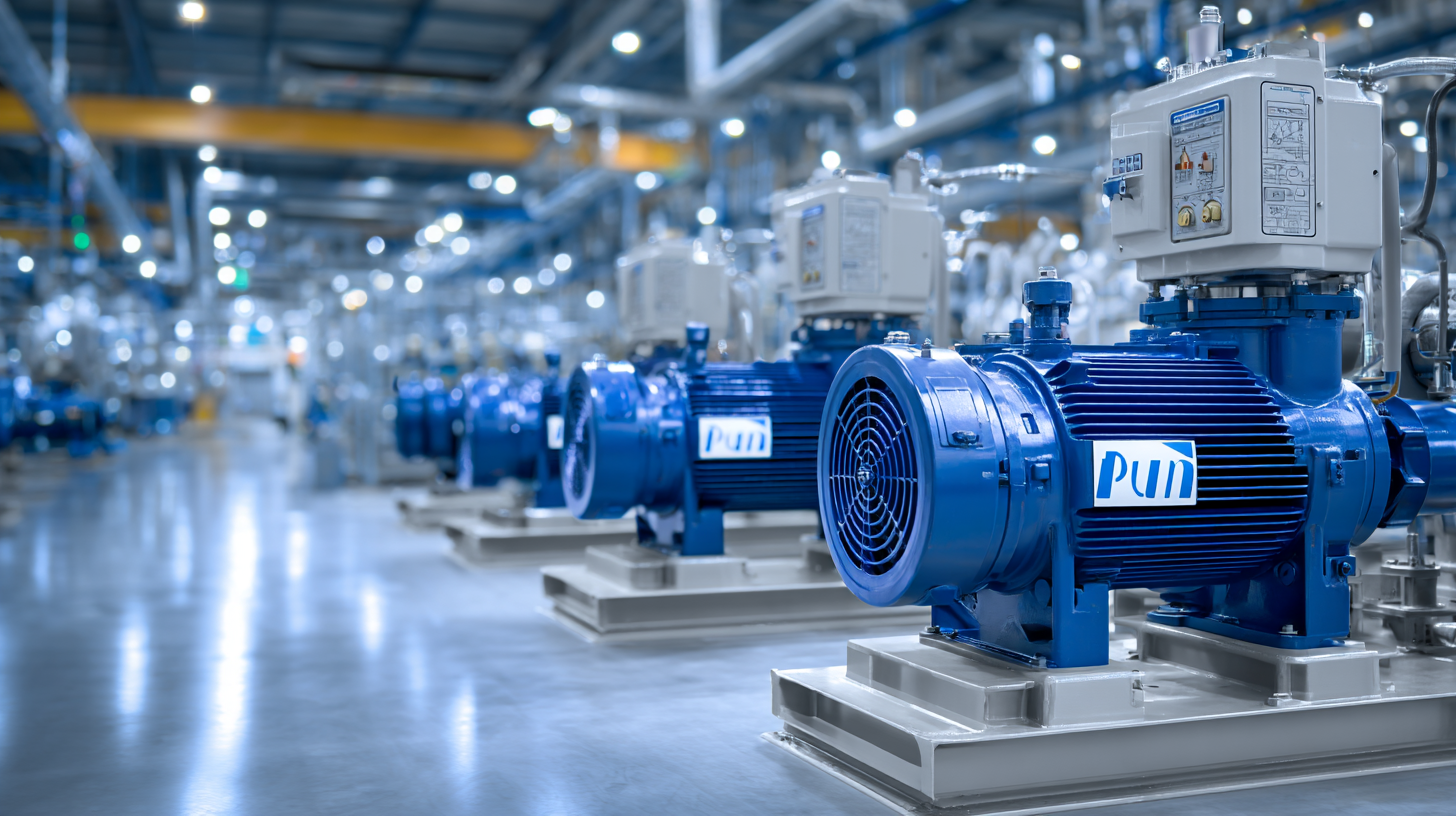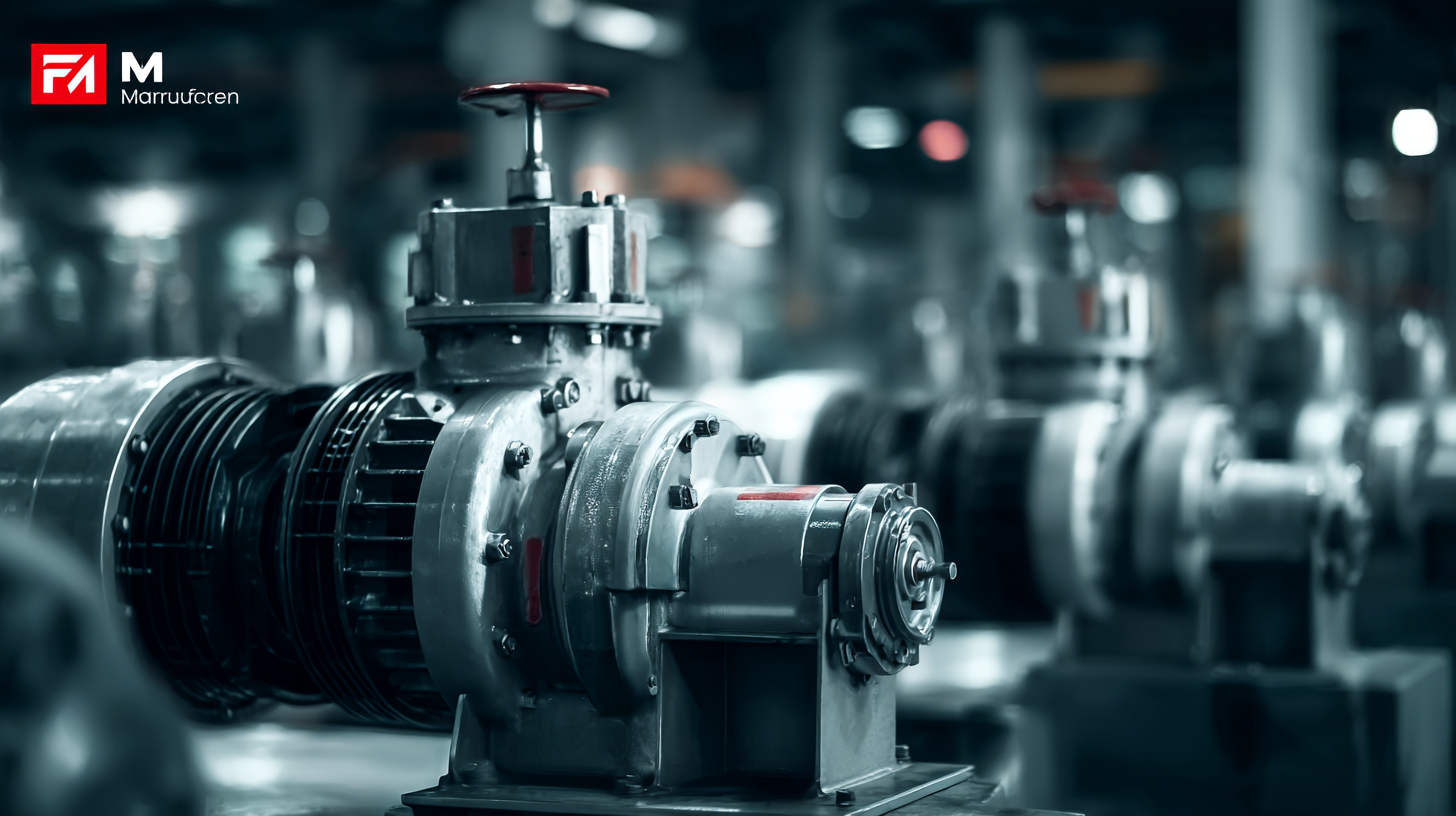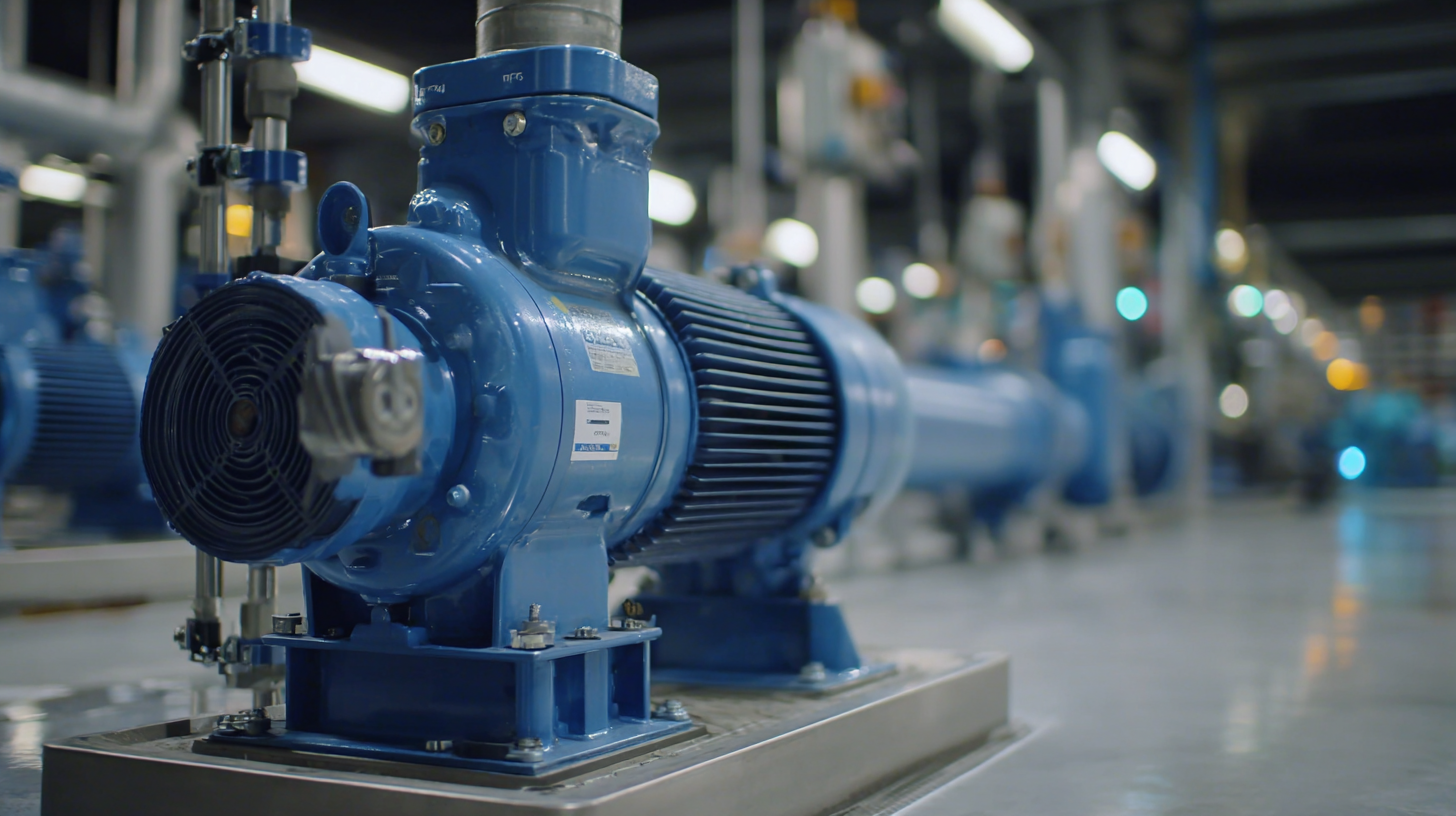- Our Products
- Repairs & Service
- Custom Design
- Blog
- About Us
- Resources
- Industries
- Contact Us
- Contact Bestrei UK
- Compliments / Complaints
- Global Supply
In today's global marketplace, selecting the right pump manufacturer is crucial for optimizing procurement processes and ensuring operational efficiency. With a myriad of options available, businesses must navigate through various considerations, from product quality and technological advancements to customer service and supply chain reliability.

A suitable pump manufacturer can significantly impact not only the cost-effectiveness of projects but also the long-term success of the operations they support. This blog will delve into key factors that should guide your decision-making process when choosing a pump manufacturer, enabling you to make informed choices that align with your business needs and aspirations.
By leveraging a combination of digital resources and top-tier manufacturer insights, you can streamline your procurement strategy and establish fruitful partnerships that drive innovation and performance in your industry.
When selecting a pump manufacturer for your global procurement needs, understanding the key technical specifications is essential to ensure you make an informed decision. First and foremost, consider the pump type required for your application. Different types of pumps serve various functions; centrifugal pumps are ideal for low-viscosity fluids, whereas positive displacement pumps are better suited for high-viscosity applications. Additionally, assess the material compatibility. The chosen materials must withstand the chemicals or substances they will handle, which directly impacts the durability and efficiency of the pump.
Another crucial specification is the operating range, which encompasses flow rate and pressure. Ensure that the manufacturer provides pumps that can meet your required specifications under various operating conditions. Efficiency ratings should also be evaluated, as more efficient pumps can lead to significant cost savings over time. Finally, look for manufacturers that offer robust technical support and service options, as ongoing maintenance and troubleshooting can impact performance and longevity. By paying attention to these technical specifications, you can select a pump manufacturer that aligns perfectly with your operational needs.

Choosing the right pump manufacturer is a critical decision that significantly impacts the efficiency and reliability of industrial operations. One of the key factors to consider is the manufacturer’s manufacturing capabilities and their quality assurance processes. According to a report by MarketsandMarkets, the global pump market is expected to reach USD 92.68 billion by 2025, indicating a growing demand for high-quality pumps. Thus, ensuring that the manufacturer adheres to stringent quality standards is essential for meeting global procurement needs.
Evaluating a manufacturer’s quality assurance processes involves examining their certifications, such as ISO 9001, which demonstrates a commitment to quality management systems. Additionally, industry-specific certifications like API (American Petroleum Institute) for oil and gas applications can further highlight a manufacturer’s expertise and credibility. A survey from Deloitte indicates that 56% of procurement leaders prioritize supplier quality over cost when making sourcing decisions. This illustrates the importance of rigorous testing and inspection protocols, which can reduce operational disruptions and enhance product lifecycle management. Ultimately, investing time in assessing a pump manufacturer's capabilities and quality assurance practices can lead to significant long-term benefits for procurement operations.
Choosing the right pump manufacturer for global procurement needs involves a nuanced understanding of procurement strategies tailored to specific market challenges. In today's digital age, companies are leveraging innovative technologies like 3D printing to enhance spare part management and streamline their supply chains. This digital transformation allows organizations to shift toward a more efficient, on-demand production model, thus ensuring a steady supply of essential pump equipment while minimizing overhead costs.
**Tips:** When selecting a manufacturer, prioritize those who demonstrate a strong commitment to advanced inventory management techniques. For instance, effective forecasting can mitigate the risk of supply disruptions and excess inventory. Further, understand the manufacturer’s approach to sustainability, as environmentally friendly practices not only contribute to corporate responsibility but can also align with increasing regulatory demands on emissions and waste.
Additionally, evaluate the manufacturer’s capability for a responsive supply chain. A robust supply chain that can adapt to market fluctuations is crucial as geopolitical factors increasingly influence procurement strategies. Look for evidence of strategic partnerships and logistical expertise that facilitate quick responses to changes in demand or disruptions in supply.
When selecting a pump manufacturer for global procurement, understanding the various pump technologies available and their applications is crucial. For instance, centrifugal pumps dominate the market due to their efficiency in transporting fluids, especially at high flow rates. According to a report by Research and Markets, the global centrifugal pump market is projected to reach $48.1 billion by 2026, driven by increasing demand from the oil and gas sector. In contrast, positive displacement pumps are preferred for their ability to handle viscous fluids and provide a constant flow rate, making them essential in industries like food and pharmaceuticals.
**Tip:** Always evaluate the specific requirements of your application, such as flow rate, pressure range, and fluid properties, before choosing a pump technology.
Moreover, advancements in pump technology, such as smart pumps with IoT capabilities, are significantly enhancing operational efficiency. A report from MarketsandMarkets highlights that the smart pump market is expected to grow at a CAGR of 14.3% by 2025, as industries seek ways to optimize processes and reduce downtime. Manufacturers who incorporate these innovations can provide significant advantages in performance and reliability.
**Tip:** Consider manufacturers that offer not just pumps, but integrated solutions, including monitoring systems, to improve maintenance and reduce total cost of ownership.
When selecting a pump manufacturer for your global procurement needs, understanding essential certifications and compliance standards is crucial. According to the Global Market Insights report, the pump market is expected to surpass $80 billion by 2026, highlighting the importance of reliability and quality in manufacturing. Manufacturers should ideally hold certifications like ISO 9001 for quality management systems and ISO 14001 for environmental management. These certifications not only ensure compliance with international standards but also reflect a commitment to sustainable practices, which is increasingly vital in today's market.
Tip: Always verify the manufacturer's certifications against the latest industry standards. A company that regularly updates its compliance demonstrates its dedication to quality and reliability.
Another significant compliance aspect is adherence to industry-specific standards such as API (American Petroleum Institute) standards for pumps used in oil and gas applications. These standards ensure that products are designed and tested to withstand the unique challenges of high-pressure systems, enhancing operational safety and efficiency.
Tip: Engage with manufacturers to understand their testing protocols—this insight can provide valuable assurance about the durability and performance of their products.
In conclusion, choosing a pump manufacturer involves more than just cost considerations; it requires a thorough understanding of certifications and compliance standards to ensure that you are partnering with a reliable and quality-driven supplier.

Bestrei UK has a strong footprint across Europe
United Kingdom, Ireland, France, Germany, Norway, Finland Sweden, Spain, Italy